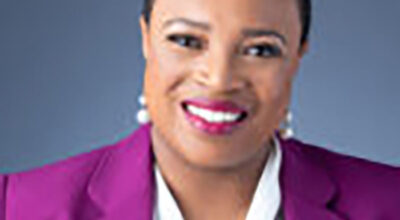RSS faces uncertainty about impact of test scores in judging renewal
Published 9:31 pm Monday, February 11, 2019
SALISBURY — While the Rowan-Salisbury school system works through plans for renewal, the means by which student performance will be judged during the ambitious undertaking remain unclear.
That uncertainty is intimidating, says Superintendent Lynn Moody.
The state law giving Rowan-Salisbury Schools “renewal” status, or charter-life flexibility across the district, asks it to submit an annual report providing data that include the number of teacher and administrator vacancies, staff turnover and student absences, but administrators and teachers alike say they are unsure how the state might view changes in traditional metrics such as test scores.
What if test scores go down? asked school board member Dean Hunter during a Monday work session. RSS administrators may feel test scores are not a good metric for student success, but it’s the measure used across the nation and in North Carolina, Hunter said.
“We can all say that scores don’t matter, and I want to say that too, but we’re going to be held to that standard,” Hunter said. “I’m just not sure how we are going to fare, at least with the rest of the educational world, at least in our state, if we’re doing this. … I’m just looking at how the state is going to respond when they see that the Rowan County school system that we gave flexibility is bombing scores worse than they were.”
South Rowan High School Principal Kelly Withers, who gave a presentation about changes made in conjunction with renewal, said teachers are worried about a potential dip in test scores.
“I don’t know that any of us can really answer how the state is going to respond to that when they see some things we’re not teaching because we’re focused on credit card interest and things that are not in the curriculum,” Withers said.
Still, she said, educators can’t completely abandon teaching test-taking skills because of exams to get a driver’s license, cosmetology license or another professional credential, Withers said.
With her, Withers brought South Rowan teacher Jason Rollins and 10th-grader Chloie Sawyer, who said personalizing her classroom experience made school more enjoyable. In Rollins’ class, for example, Sawyer said she’s studying history connected to careers she hopes to pursue.
“We want to flip the core to a supporting role and move the student’s interests and next steps into center stage,” Withers said.
A future student at South Rowan interested in opening a business, for example, may work a business plan in a “principles of business” class. That class might be co-taught with an English teacher who emphasizes communication skills to be successful in the business world. A masonry class might be co-taught with a math teacher so students can learn “real-life math skills needed to succeed,” Withers said.
Rollins offered up an anecdote as evidence that it’s possible to raise scores if students are more interested in school subjects.
Last year, Rollins said, his classes used standards that allowed for more personalized curriculum, similar to Sawyer’s example, as opposed to uniform instruction for every student. He said final exam scores were higher during the year in which learning was personalized than the prior one.
“So, I wanted to let you know I have data if someone needs data to throw at the state. You can throw it at them,” Rollins told the school board. “I kind of ignored what state standards were and looked at what were important standards.”
For years, as schools promoted a path that included a college degree, there was no proper examination of what students needed, Rollins said.
“The current education system was designed for a different time,” he said. “If you look at our current schools, they are nothing more than factories, trying to pump out the same product, but our children are more than a product to be pushed out of a factory.”
Moody agreed with Rollins that teaching the same standards to every student isn’t the right way.
“I think our test scores are actually going to go up,” she said.
If not, Rowan-Salisbury Schools must be judged on multiple standards, she said.
The measures upon which RSS will be judged could be ready as soon as this fall, Moody said. N.C. State University’s Friday Institute for Educational Innovation will begin its work to design standards in April with possible completion in September, she said.
Meanwhile, schools across the district will present their renewal plans to the central office staff and the Board of Education in April.
A timeline presented Monday shows a series of presentations scheduled April 1-8. Board of Education members on Monday discussed splitting up presentations to ensure at least one board member is present at each one.
Complete school plans will be considered for approval by the Board of Education in April. Already, the school board has approved individual items of some plans, such as the teacher pay-related portion of a plan for Knox Middle School.
Implementation of school renewal plans would begin in August.




